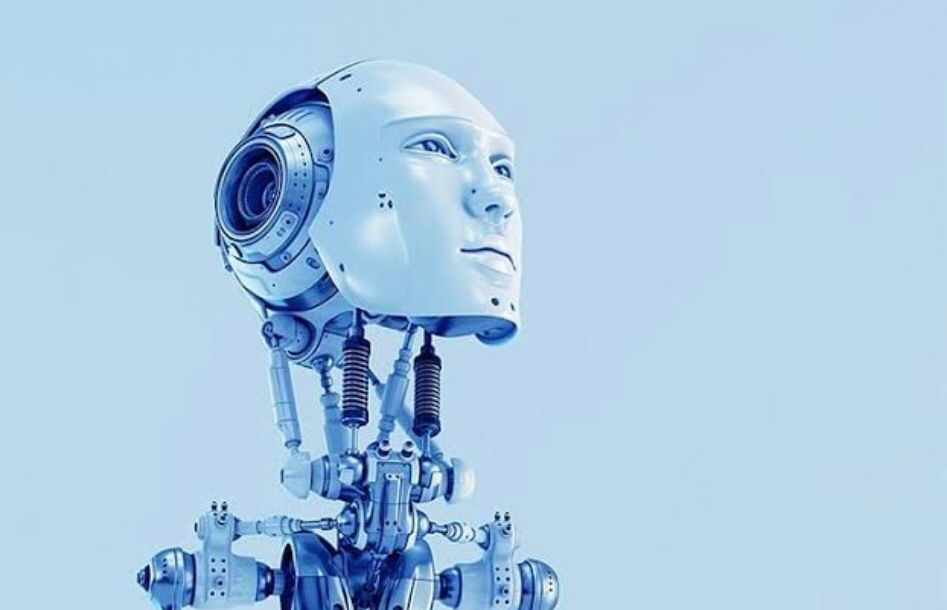
Artificial intelligence (AI), is going to change the way we do things, and how we connect to others and also what we know about ourselves. This article will first explore what is AI and discuss its effects on social, economic changes it brings to people in the 21st century.
What is (AI) all about?
(AI) has many aspects; some people see it as the technology that allows machines and computers to function in a smart manner. Some people see it as the replacement of human interface by machines for effective and accurate results. Others see it as “a system” with the ability to precisely analyze data, to learn from such data, and to use it for achieving specific goals and tasks.
Despite different interpretations, the most common belief about AI is its association with machines and computers to help humans solve complex problems and facilitate favorable outcomes. In brief, it is an intelligence developed by humans and exhibited by machines. The term AI is used to elaborate on these functions of man-made tools that mirror the reasonable potential intellect of human minds.
Along with the expeditious development of cyber technology in recent years, AI has been seen almost everywhere, and some of that may no longer be referred to as AI because it is habitual in our daily lives now, such as Siri or Alexa.
Different types of Artificial Intelligence
From the potential and tasks provided by AI, we can classify it into two different types. The first is weak AI, also known as narrow AI that is outlined to carry out confined tasks, such as facial recognition, Internet Siri search, or self-driving car. Although this weak AI seems to be supportive to human life, there are still some who think weak AI could be threatening because it could hamper the electric grid or may damage nuclear power plants in breakdowns.
The evolution of the long-term goal of many scientists and researchers is to create strong AI that has the intelligence of a machine and can understand or learn any intelligent human task, thus facilitating humans to resolve complex issues. While narrow AI may outperform humans in areas such as playing games or decoding equations, its effect is still slow.
Strong AI is a different perception of AI that it can be laid out to actually be a human mind, to be clever in whatever it is asked to do, and even to have sensitivity, intellect, wisdom, and other analytical capabilities that are normally only attributed to humans.
In synopsis, we can see the following different functions of AI
- Automation: What makes a system or operation function automatically?
- Robotics: A field of engineering focusing on the design and manufacturing of robots, the so-called machine man. They are used to execute tasks for human benefit or something too difficult or threatening for humans to carry and can operate without halting, such as in assembly lines.
- Self-driving car: Use an amalgamation of image identification, past data, computer vision amid deep learning to build automated control in a vehicle.
Is AI really required in society? It depends. If humans opt for a quicker and more effective way to finish their task and to keep continuity in their work without a break, yes, it is necessary. Our history tells us that humans are always looking for something that is swift, rapid, more productive, and suitable to finish the task they want to accomplish. Humans discovered tools could facilitate many hardships for daily living, and through the tools they invented, humans could complete the work faster and in an effective manner. We enjoy a much more relaxed and easier life today, all because of technology.
Besides, up-to-date AI is transforming the healthcare industry today. Hospitals are performing surgeries with an autonomous robot. Robotically-assisted surgery can overcome the limitations of invasive surgical procedures.
Above all, we see the high-profile examples of AI including autonomous vehicles such as drones and self-driving cars, medical diagnosis, metaverse playing games, search engines, online assistants, image recognition in photographs, spam filtering, predicting weather and flight delays, etc. All these have made human life so easy and convenient that we are so used to them and take them for granted. AI has become indispensable; without it, our world would be in chaos in many ways today.
Impact of artificial intelligence on our society
Negative impact
- face-to-face communication: Humans have to be diligent to make a living, but with the service of AI, we can just program the machine to do a thing for us without even picking up a tool. Human interactions will gradually diminish as AI replaces the need for people to meet face-to-face for idea exchange. This will impact communication skills in long term
- Lack of employment: AI will create many jobs which can be replaced by machinery. Today, assembly lines have been filled with machines and robots, forcing traditional workers to lose their jobs.
- Misuse of technology: The human masters who create AI may invent something that is designed to harm certain people or things. With the advent of AI it is possible to target certain communities or some specific programmed objects to accomplish the command of destruction by the programmers, thus fabricating disaster.
Positive Impact:
1 Development of Hospital Industries: scientists, doctors and tech experts have prioritized the development of robots which will be able to perform complex operations. This will reduce chances of error and many methods of curing people can be developed. This upcoming technology will be a boon for the nation
2 National security: Using AI in research agencies government portals will build a strong community network which will be extremely safe. There would be minimal chances of data loss. AI Robots with collaboration with the army can be supervised for duty and can be sent for rescue operations
CAUTIONS:
Despite of all the positives that AI provides, humans are still the key and are necessary to design, program, and operate the AI to prevent any unforeseen errors from happening. There are times when AI meets a dead end, and to carry on its mission, it may just keep on randomly creating more problems than solving them. Thus, we need to be watchful of AI’s function, as it cannot be just left on its own. The following aspects should be kept in mind before the universe takes a deep dive in the world of AI for better results for humanity:
1 People should not be manipulated or pressurized by AI systems, and humans should be able to intercede or oversee every decision that the software makes
2 AI should be reliable and correct. It should not be easily compromised by external attacks, and it should be secure.
3 AI systems should protect any personal information they obtain. It shouldn’t be readily stolen and shouldn’t be accessible to just anyone.
4 Services provided by AI should not be biased age, gender, race, or other characteristics.\
- AI should win the trust of the people which will
Conclusion
AI is here to stay in our world, and we must try to enforce the AI ethics of clarity, explicitness, and accountability. AI is today’s reality of the world. AI as a machine will never possess human qualities such as compassion and wisdom to spot and distinguish. AI will always remain as AI without having sympathetic feelings. Therefore, AI technology must go forward with utmost caution.

Author – Vishrut Gupta










